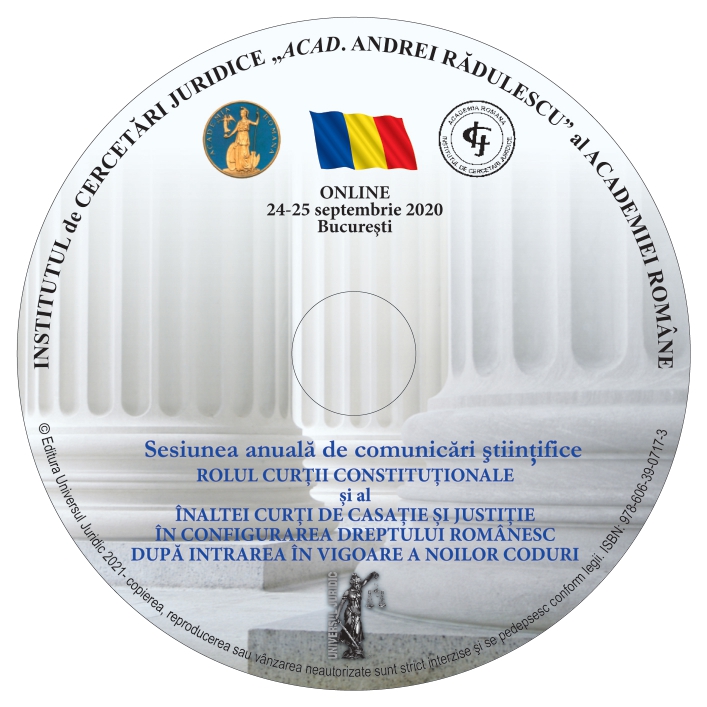Jurisprudența Curții Constituționale – sprijin real pentru noua viziune a legiuitorului în materia administrării probelor în procesul civil
Jurisprudence of the Constitutional Court - Real Support for the New Vision of the Legislator on the Administration of Evidence in Civil Proceedings
Author(s): Nora Daghie
Subject(s): Law, Constitution, Jurisprudence, General Reference Works, Civil Law, Human Rights and Humanitarian Law, Source Material
Published by: Universul Juridic
Keywords: plea of unconstitutionality; production of evidence; termination; right to fair trial; free access to justice;
Summary/Abstract: The right to a fair trial and settlement of cases within a reasonable time is a rule taken over by the Romanian constituent from the European Convention for the Protection of Human Rights and Fundamental Freedoms the ultimate purpose of which is to assure the quality of justice delivery, and effectively secure the fundamental right of free access to justice for the persons seeking justice. In civil proceedings, the judge draws conclusions and renders a judgment on the basis of the evidence produced in the case – da mihi factum, dabo tibi ius. The judge’s intimate belief as to the truthfulness of the facts presented relies on a correct and complete evidence production exercise, as well as on the value of the evidence thus produced. In the civil proceedings heard by the Romanian courts of law, evidence is usually produced in the written stage of such proceedings. The New Civil Procedure Code contains general provisions about the production of evidence which were not available in this form under the previous legislation. The law-maker rendered the exercise of a right conditional upon the effective exercise thereof within a certain period of time with a view to putting in place an indispensable climate of order, and thus preventing any abuses and protecting the rights and legitimate interests of the other parties, but without prejudice to the realization of the free access to justice
- Page Range: 26-33
- Page Count: 8
- Publication Year: 2020
- Language: Romanian
- Content File-PDF

